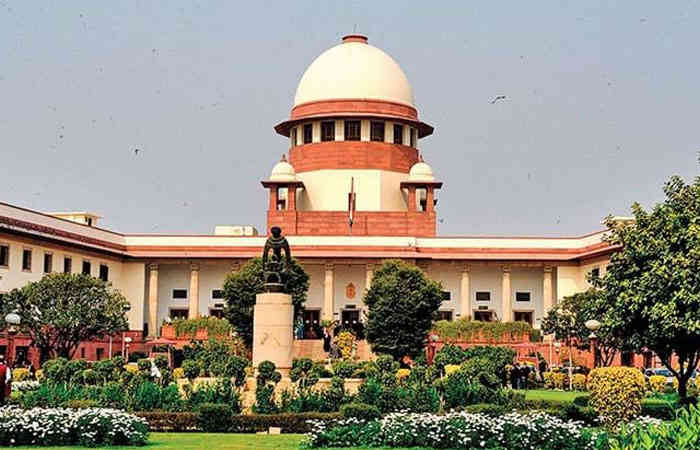
New delhi date. Wednesday, February 24, 2021
The heir to the estate has been given a landmark judgment by the country's highest court. In which people coming from the father of a Hindu woman can be considered as heirs in their property. On the other hand, these relatives cannot be considered as persons outside the family, they will come under the purview of Section 15.1.D of the Hindu Succession Act and will also be considered as heirs of the property.
The apex court in its judgment said that the family on behalf of the woman's father would come under Section 15.1.D of the Hindu Succession Act. A bench of Justice Ashok Bhushan, after hearing Section 13.1.D, clarified that the father's heirs are considered heirs. Which is entitled to the recipient of the property, but when the family members towards the woman's father are included. Who can acquire wealth. So in this situation it cannot be said that they are strangers to the family, and not the family members of the woman.
What is the whole matter
The court granted the arrangement in a case in which a woman named Jagno got her husband's property. Her husband died in 1953. He had no children. So half of the agricultural property went to the wife. The wife became the sole sole heir to the estate under Section 14 after the Succession Act, 1956, became law. Jagno then made an agreement for this property and made the property in the name of his nephew's sons. Her brother's sons then filed a lawsuit in a civil court in 1991 seeking to have the property declared in their favor. Jagno did not oppose it and gave his recommendation.
Defined Section 15.1.D of the Hindu Succession Act of the Supreme Court
The Supreme Court defined Section 15.1D of the Hindu Succession Act and said that the relatives coming from the father of a Hindu woman are not strangers, they are also part of the family. The word family in the law cannot be given a narrow meaning, and must be seen in an extended sense, which would also include the family of a Hindu woman. The court also clarified that if there is an affidavit decree on a property in which the right has already been created, it does not need to be registered under Section 17.2 of the Registration Act.
Recommended decree challenged
The court granted ownership of the property in the name of Jagno's brother's son with a decree approving it, but this transfer of property was opposed by Jagno's husband's brothers and challenged the recommendation decree. He said that a Hindu widow does not form a joint Hindu family with her father's family. So that this property cannot be made in the name of his father's children. Family settlement is the opinion of those who already have a right to property. But the High Court dismissed his petition. After which they came to the Supreme Court.
Comments
Post a Comment
What you think about this NEWS please post your valuable comments on this article, we will immediately publish your comments on this page